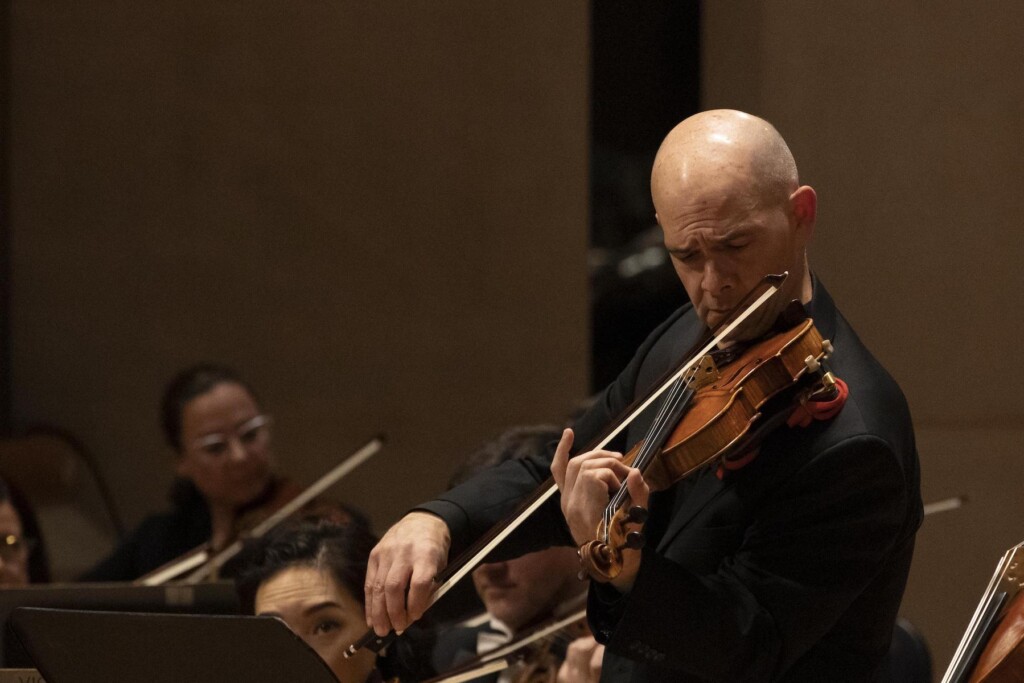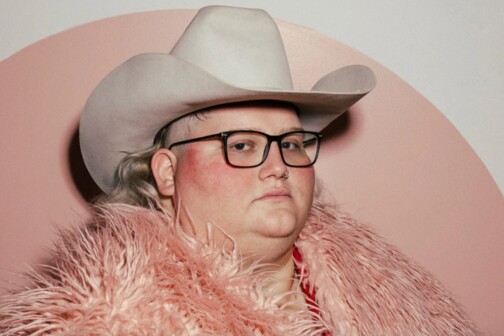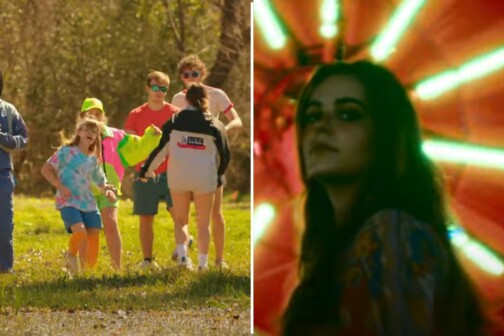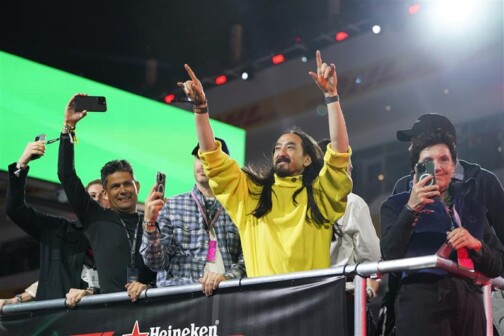Dallas Symphony Orchestra concertmaster Alexander Kerr is releasing a new album this January, one that reunites him with a former DSO colleague. The album explores 150 years of music in a small niche of the repertoire: music for French horn, violin, and piano.
It’s a rare combination, because the horn is so loud, so able to project its booming calls to the back of a concert hall, that it risks drowning out the other two instruments. But Kerr, horn player David Cooper, and pianist Orion Weiss assembled a program of three such works: a classic trio by Johannes Brahms, a little-known but sizeable piece by the English composer Lennox Berkeley, and a brand-new work written for the musicians by Jonathan Leshnoff. A grant from the DSO paid Leshnoff’s commission and helped with recording fees.
The new album should be available on streaming and in stores from January 13. It’s a big month for Kerr, as he is also the DSO’s featured soloist for its first concerts of 2023. When we chatted about his recording, he was busy practicing Erich Korngold’s violin concerto, a sumptuous piece that reflects its author’s status as an Oscar-winning writer of classic Hollywood movie scores. (Some of the concerto’s big tunes come from his films.) Kerr plays the Korngold concerto here this weekend, Jan. 5-8.
If you can’t make it to the concert hall, you can still find Kerr’s new recording and appreciate its mix of repertoire. The Brahms piece is the only well-known “classic” ever written for horn, violin, and piano, a half-hour work of many moods that generations of horn players have used to show off their range. Cooper was the DSO’s principal horn player for five seasons, leaving for Chicago in 2019.
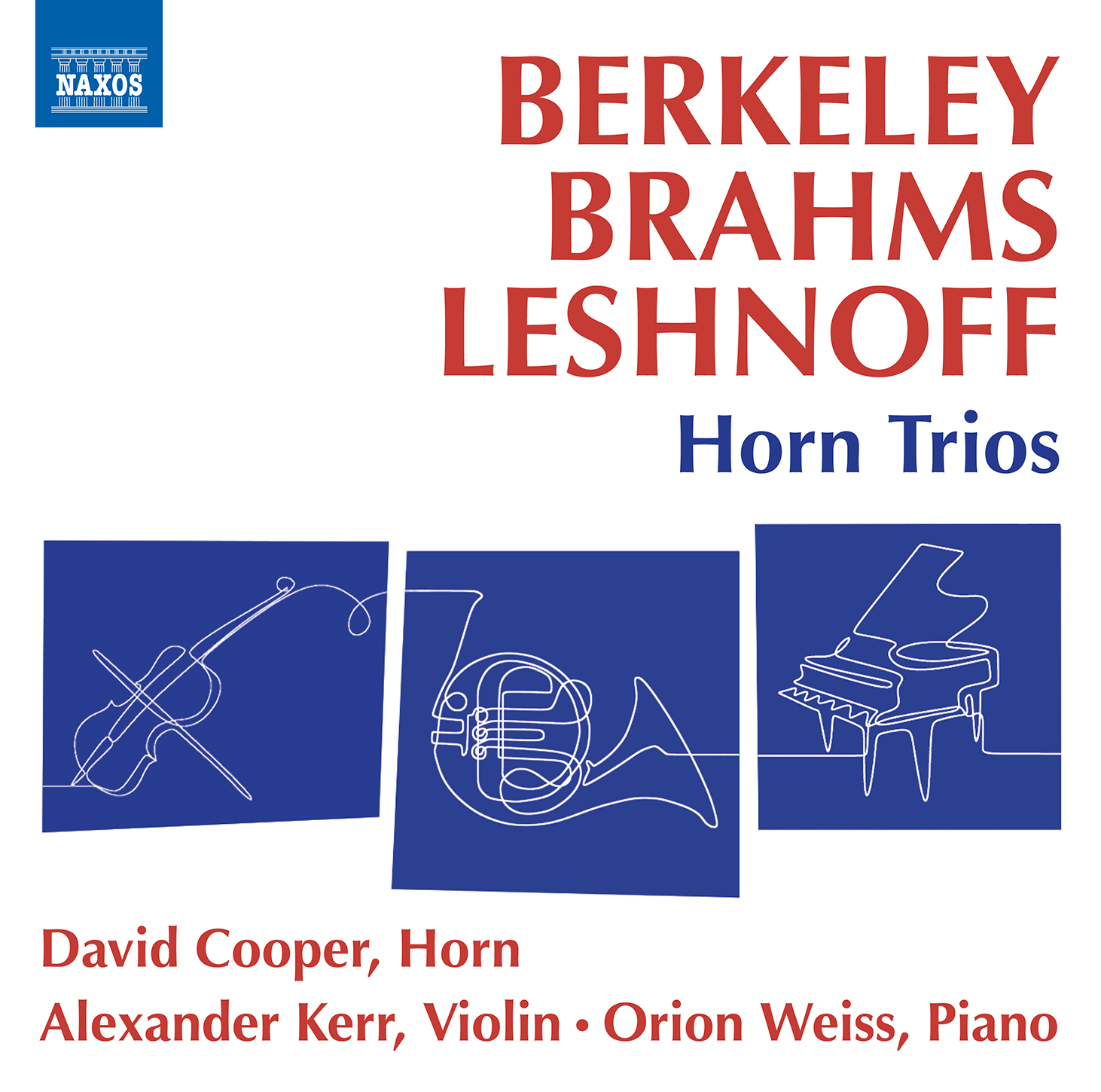
Unearthing the work by Lennox Berkeley, and commissioning a new one from Leshnoff, makes this album’s program unusually interesting. “The Lennox Berkeley, that’s an eye opener,” Kerr says. “The Brahms is something you want to listen to in the evening with a glass of wine, but Berkeley will wake you up.”
Berkeley was a student of Ravel’s and a friend of Poulenc and Stravinsky; he once co-wrote a piece with Britten. In other words, he was always on the edge of fame, his talent recognized by colleagues and performers but never by the public at large. This is, Kerr says, only the second recording of Berkeley’s horn trio, though he was able to watch a performance on YouTube.
The trio is in three movements. “The second movement is just absolutely soulful, plaintive, where the horn and violin are trading off these soulful moments,” Kerr says. He describes the theme-and-variations finale as “incredibly challenging,” a more rambunctious series of moments that give all three players a workout.
Kerr has long been a champion of Leshnoff, a Baltimore-based composer whose music connects directly with profound emotional themes, like Jewish spirituality or the letters of soldiers writing home from World War I. Kerr premiered Leshnoff’s second violin concerto with the Dallas Symphony in 2018.
“People love Jonathan’s pieces,” Kerr says. “He knows how to hit the emotional center. He’s also an incredibly soulful person. When you meet him, there’s this calm, this peace, but he’s such a loving person.”
Leshnoff’s horn concerto is short—just 12 minutes—but spans a huge emotional range, with a slow, melancholy first half and then a racing, galloping finale. The album’s booklet notes use words like “joyous” and “romp.”
“My son was 12 at the time that we recorded the trio,” Kerr says. “He was making up this story as it went along, like it was a movie. It tells you how evocative Jonathan’s music is, that he loved the piece at age 12 and was able to identify with it so readily.”
Kerr says that for this new album, he had to re-learn the violin on the fly. Because the horn is so loud, the violin has to compensate—but then the placement of microphones and the acoustics in the concert hall also had their own effects, which meant that, oddly, Kerr needed to play what sounded like cartoonish extremes in order to achieve balance in the finished sound files. To be heard in a loud moment, he needed to play as loudly as possible, but to sound gentle or sensitive, he needed to play even more quietly than usual.
“We would do a take and we would listen back to it,” he says. “I would realize, that’s not gonna work. It doesn’t sound the way I sound, because of the way we had the mics. Right then, I had to adjust the way I played. We didn’t have unlimited recording time. I had to think about what I had to do, we would do another take, and I would see if I was on the right track. I still don’t understand why the softer dynamics I had to play so much more softly. I don’t understand the physics. But I had to play on a hair. One hair.” (A violin bow typically contains more than 150 horse hairs.)
Kerr is grateful to the Dallas Symphony for helping to finance the project and for supporting its artists when they’re off the concert stage and even out of town: “That’s what incredible about the orchestra. They want you to not just play in the orchestra but to expand your own level, your creative juices. It can only benefit the orchestra. We’re lucky. Our leadership is fantastic. We’re lucky to have a leadership that allows creative processes like this.”
“Horn Trios: Berkeley, Brahms, Leshnoff,” available Jan. 13 for streaming and purchase. Preorder the physical CD from Barnes & Noble, Presto Music, or Amazon
Get the FrontRow Newsletter
Author



